Heat pumps: fact or fiction?
There is often a lot of conflicting information online and in the press about heat pumps so we’ve done some fact checking on some of the most talked about heat pump points.
Like any new development in technology, there will always be those who say that the old way is better! If we had stuck to those thoughts we wouldn’t have trains, aeroplanes, computers or AI as we do today – all these things make our lives easier.
Innovation and improving the technology around us is something we can all get behind. Heat Pumps are no different and have received a lot of bad press, but the technology has been around for over 100 years. We’ve just got better at adapting them for homes to help reduce our energy usage and save on our energy bills.
So, let’s take a look at the real facts around heat pumps.
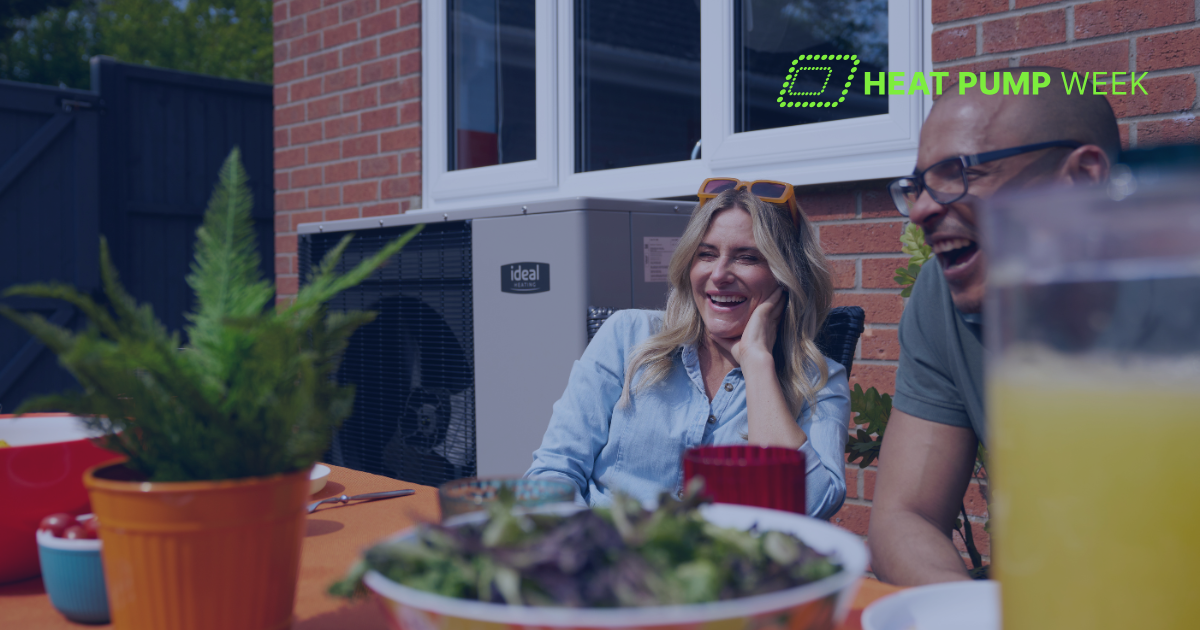
FICTION: Heat pump installation costs are too expensive
FACT: You can get help with the cost of your heat pump with grants and incentives
While installing a heat pump can be more expensive than installing a gas boiler in some cases, it isn’t always to case. However, if you look at the savings and efficiencies you could make, installing a heat pump really is a worthwhile investment.
So how much does a heat pump cost? We’ve written a detailed article here if you’d like more in-depth information but the average price for installing a heat pump starts at around £6k.
Here are some key facts to remember when it comes to the price of your heat pump:
- The size of your home and its heat loss
- Where to place your external unit and the internal water cylinder
- The insulation in your home including loft, cavity and wall insulation
- What temperature you want the system to operate at for heating and hot water.
All of this will be considered and factored into your quote. To help you with the transition to an air source heat pump, schemes like the Boiler Upgrade Scheme give eligible homeowners access to a grant of £7.5k towards the installation costs. You can read more about the different schemes and grants that are available here.
Finally, many heat pump installers also offer monthly finance options to give you the option of manageable monthly payments when purchasing your heat pump heating system.

FICTION: You need to replace all your radiators with a heat pump
FACT: You may not need to replace your radiators at all
The performance of your heat pump hinges on the compatibility and efficiency of your radiators. Larger radiators with convectors work best with air source heat pumps. This is because they run at a lower flow temperature so need a larger surface area to be more effective.
If you have older conventional type radiators, you may need to replace some or all of them as part of your installation. Don’t worry, we’ll advise you on the best course of action. If you really don’t need to replace them, we won’t advise you to. If you really want to get into the detail on radiators, read our deep dive post here.
If you do decide to keep your older radiators, they will still work but your heat pump might not be as efficient. In this case, it may need to work harder to generate the required heat for your home which in turn could cost you more in your energy bills.
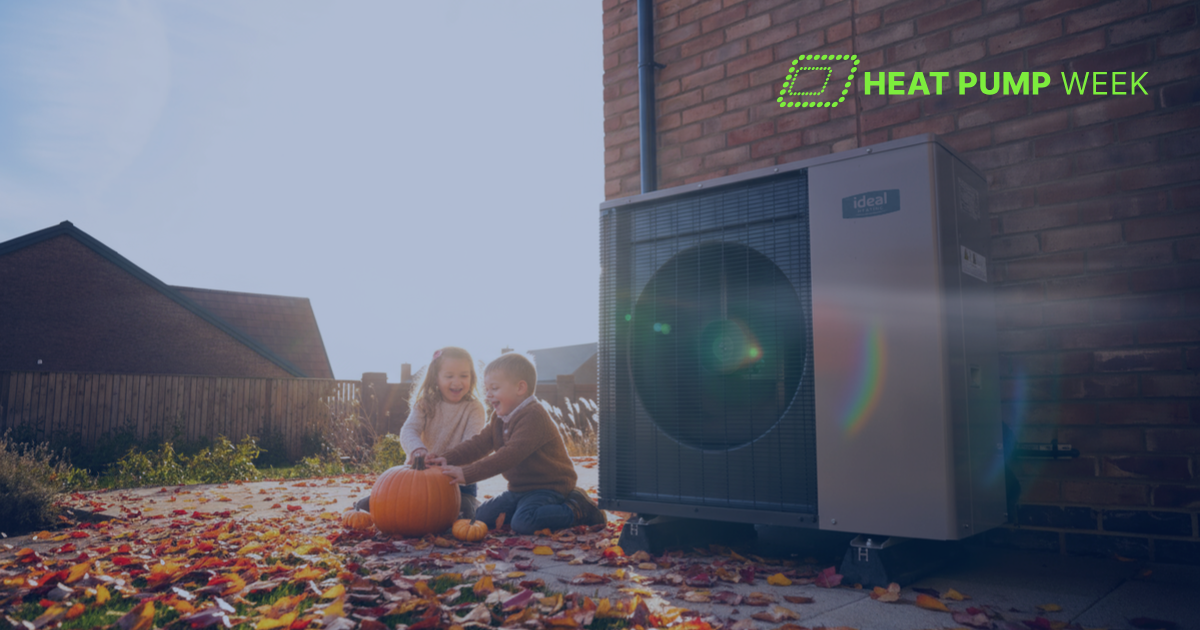
FICTION: Heat pumps don’t work in cold weather.
FACT: Your heat pump will work perfectly well in the UK climate.
Heat pumps use energy from the air to boil a refrigerant gas which turns into a vapour. This vapour is then compressed to produce heat. The refrigerant boils at a very low temperature meaning the heat pump will work well all year round even in lower temperatures. This is especially the case here in the UK, where temperatures range from 0°C to 2°C in southern England, and -1°C to -5°C in northern and inland areas of Scotland. A well-designed heat pump system can keep a home warm at up to -25°C
Whilst heat pumps work less efficiently in extremely cold weather this is more than made up for when they work at more than 300% efficiency during warmer months! The 300% efficiency we aim for is an average efficiency over the whole year.
Before we even think about installation, we will look at the factors below to design the best system for you and your family to make the most of your heat pump:
- The size of your home and its heat loss
- Where to place your external unit and the internal water cylinder
- The insulation in your home including loft, cavity and wall insulation
- What temperature you want the system to operate at for heating and hot water.
We also back up our installs with our Heat Pump Promise so if your heat pump doesn’t heat your home as promised, we’ll give you a refund.
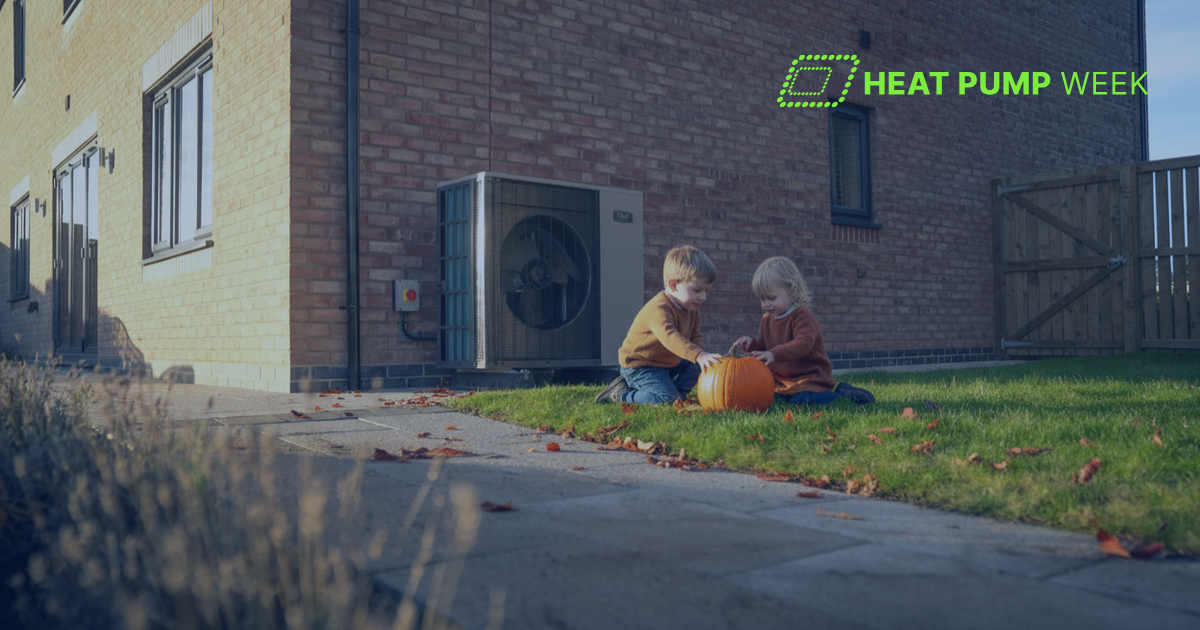
FICTION: Heat pumps are too noisy
FACT: Your heat pump is no noisier than your fridge
Given the ‘noise’ on the internet about this issue, you would probably be surprised about how quiet a heat pump actually is. A modern air source heat pump is about as loud as a fridge humming in the background, and many are even quieter than that.
For context, your gas boiler’s noise ranges between 30-6-dB. If you are happy with how noisy your gas boiler is, you won’t even notice the sound of your new air source heat pump, and neither should your neighbours.
For a comprehensive look at heat pump noise, and to hear them in action for yourself, head on over to our article here.
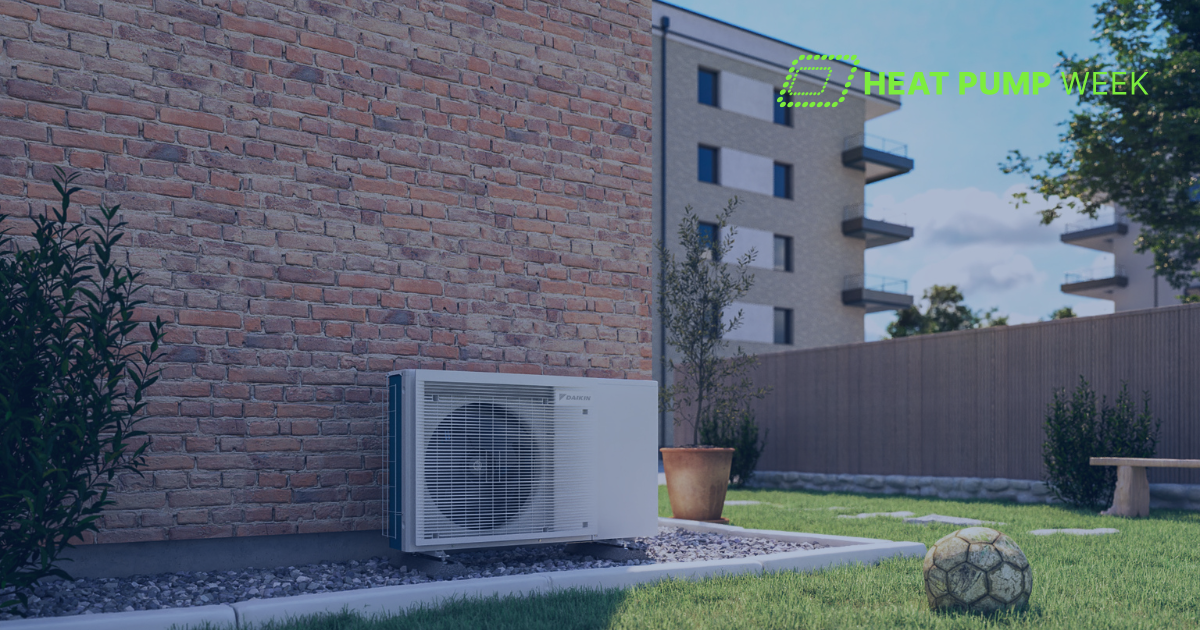
FICTION: Heat pumps only work in new builds.
FACT: Heat pumps will work in most UK homes
This is one of the myths that we hear most online and it’s one of the easiest myths to disprove. If your home has good insulation and you have large surface radiators, there is no reason why a heat pump can’t work in your home. Over 280,000 UK homes have been successfully retrofitted a heat pump, and we have installed thousands of them!
This is where the design process is critical. A qualified and trusted installer (read our post about the importance of an expert installer here), will ensure the system is designed specifically for your home.
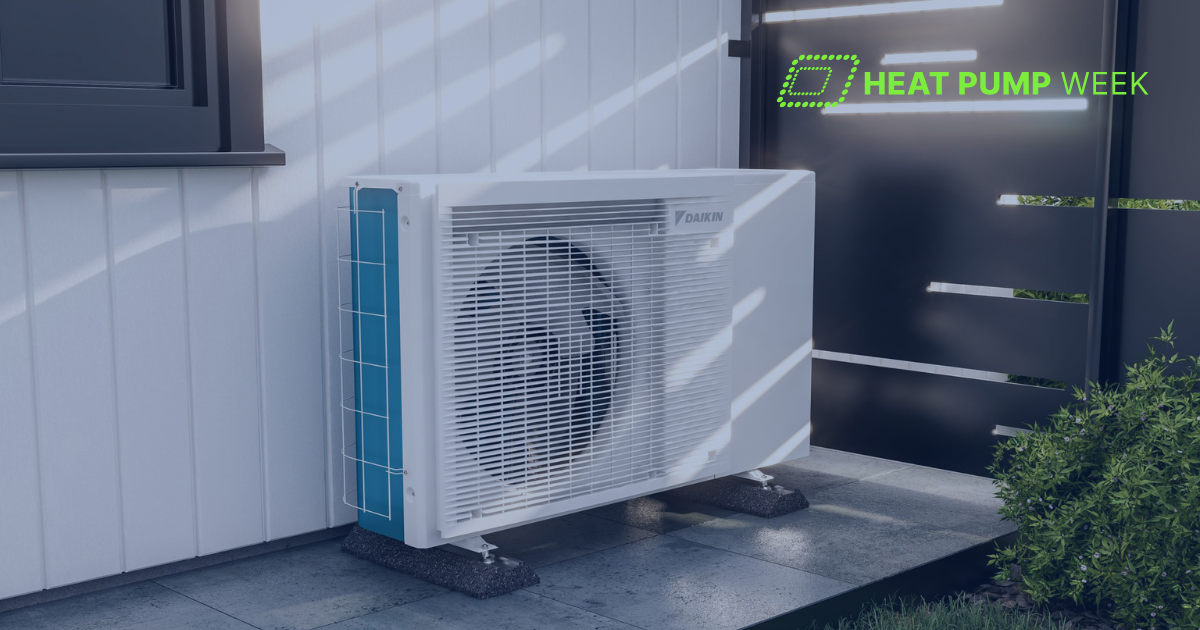
FICTION: Heat pumps don’t save carbon if the electricity comes from gas
FACT: Heat pumps offer significant carbon savings and lower emissions
Some people claim that heat pumps don’t really save carbon if the electricity is generated from gas, but that’s not the case. Heat pumps are over 300% more efficient than gas boilers, so even on a grid that still relies heavily on gas, they cut emissions straight away.
The average UK home making the switch from a traditional g-rated gas boiler to a heat pump could make reduce their CO2 emissions by 77-86% over 15 years compared to a gas boiler, based on UK Government guidance according to Carbon Brief. So, in practical terms, the average UK household could save over a tonne of CO₂ every year just by switching to a heat pump.
The reason is simple: instead of burning fuel to create heat, a heat pump moves heat using electricity, which is a much more efficient process. A gas boiler always produces more CO₂ to heat your home than a heat pump using the same amount of electricity — even if that electricity comes from gas. And as the UK grid continues to add more renewables, those savings will only keep growing.



